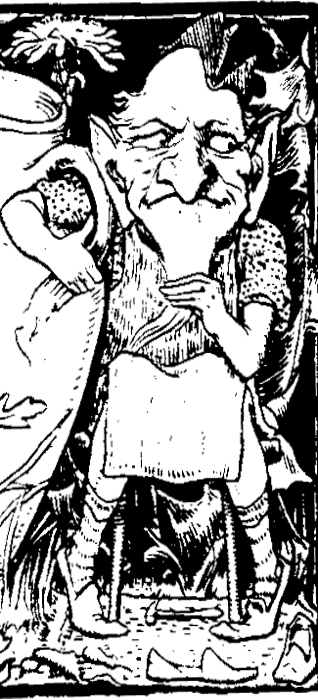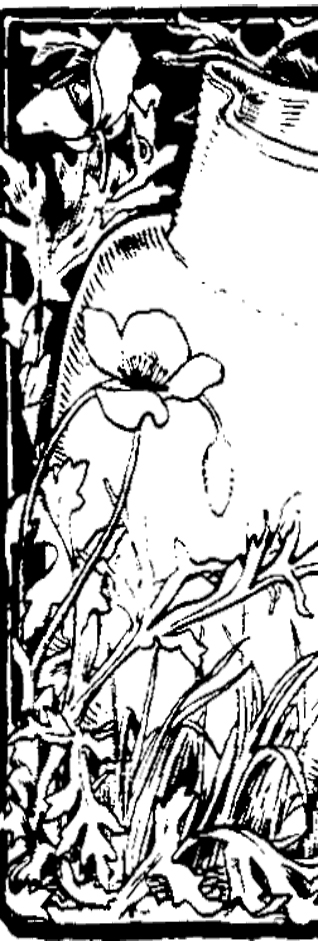Columnists
There Are More Things in Heaven and Earth
T. SHER SINGH
There are more things in heaven and earth, Horatio,
Than are dreamt of in your philosophy. [Shakespeare, Hamlet, I.5:159–167]
Met up with an old friend from my school days a couple of weekends ago.
It was good to reminisce … because it felt like taking inventory: with a mental clip-board in hand, checking off things we once had but don’t any more, and keeping track of new stock on the shelves.
Neeti, Minoo and I were an inseparable trio then, through much of our days at Patna College, when we were pretending to study for our BA English Honours. Being teenagers then, we had a string of preoccupations and distractions.
Minoo, son of a senior police official -- an honest one, I remember -- was always dreaming of security through financial success. That was his orientation.
Neeti, son of a small-town but successful lawyer, was gifted in the arts. He could pick up any musical instrument and within a minute or two, play any tune of your choice with the flair of a pro. He sang KL Sehgal and CH Atma like the originals. We’d sit by the Ganges riverside every evening, moping over our romantic troubles, and he would regale us with sad ditties.
I, a son of a middle-class businessman, was a book-worm who dreamt of a career in academia, desperate to avoid being pulled into inheriting the family business. I recall that as early as then I was attracted to, and had a better grasp over the abstract.
Odd, but with Minoo being a Muslim, Neeti being a Hindu, and I a Sikh, we never talked about each other’s faiths. I recall that each one of us was reasonably entrenched in our respective beliefs, but nevertheless they were not the be-all and end-all of our existence.
We were aware of each other’s boundaries and respected them. But that was the full extent of it in our daily interactions.
Other things loomed bigger in our consciousness.
Like girls.
Each one of us claimed to be besotted and therefore felt qualified to counsel the others endlessly on how to sort out our problems and nurse our grievances. And how to polish our wooing and courting skills -- which were then, as now, clearly lacking.
Since we were already students of literature and buried in books, turning to the latter for solace was automatic. It helped that we had a wonderfully inspiring teacher -- Prof. Devidas Chatterjee, who we referred to as ‘DC’ -- who would charge us everyday with his live-wire renditions of T. S. Eliot or Thomas Hardy or Shakespeare and send us out into the world, feeling lost and desperate to find our way.
One day, while introducing us to the intricacies of WB Yeats’ poetry, DC told us of Yeats’ reliance on the occult as his muse. When he mentioned “A Vision", a book in which Yeats describes his ’experiments’ and adventures into the ’unknown’, we made a mental note.
After the class, we made a beeline to the library and found the book and quickly read it from cover to cover.
One late night, tired of studying for an exam, we got talking about Yeats. One thing led to another and, before long, Minoo had pulled out a large sheet of paper, scribbled the alphabet and numerals on it in a semi-circle, and placed a bottle cap on it.
It was a make-shift Ouija Board, he explained, and then, step by step, he introduced us, ogle-eyed, to the world of the planchette and automatic writing.
Neeti, it turned out, was a medium, a hidden talent he had been hitherto unaware of. Through him, we pursued questions that then plagued our young minds: the Meaning of Life; What is God; Is There a Heaven and Hell; and frivolous, childish questions like that.
It took up a good chunk of our spare time for several months … until we came to the conclusion that we were barking up the wrong tree.
So we turned to books on philosophy. Plato and Aristotle, Nietzsche and Kierkegaard, Sartre and Bertrand Russell, became the staple of our conversations.
For a while. Then we graduated to the likes of Krishnamurti. Good thing we were stuck on the subcontinent, because had we been anywhere close to California, where he lived, we would’ve inevitably attached ourselves to him like leeches.
We lapped up every word he had ever written. He seemed to interpret the world through our idiom, which consisted of an eastern sensibility but a western orientation. His arguments were convincing and exhilarating at the same time. The pleasure I got from it was the same I gathered from Neeti’s music or Minoo’s tales of escapades.
I dug deeper and deeper into esoteric writings, which were well complemented and supplemented by DC’s role as Pied Piper through the world of prose and poetry.
I thought I’d find an answer, and then it would crumble into dust with the light of day. I’d turn elsewhere, treading on newer paths and then finding myself again and again at T-junctions and dead-ends.
I discovered that everything I read was indeed clever, sometimes interesting, even alluring, but never able to hold water.
Slowly, ever so slowly, I began to realize that no one had any answers. They were all most intelligent and innovative. And genuinely and sincerely looking for answers … just like me. But none had come an inch closer to what they sought. All they were left with was theories which others then labelled ’philosophies’ and gave them names and handles.
It was around this time that I had also begun to find decent writings In English on Sikhi. Authors like Teja Singh and Jogendra Singh were not easy to find, but I found obscure copies of their publications in the dusty Sinha Library on a back street not far from where we lived. It was a massive private collection a century old, in a grand old Victorian Mansion whose residents were long dead, now open for a few hours every day for anyone curious enough to come around.
They led me back to Puran Singh and Ganda Singh and Kapur Singh and, of course, Khushwant Singh. This was when I also began to drift back towards Punjabi writings such as those by Bhai Vir Singh; suddenly, supported by the others I was reading, they made better sense.
Gradually, the world of Sikhi began to unfurl in the deeper recesses of my mind.
And its message was simple and straight-forward.
There were no great theories of creation, no maps of heaven and hell, no dissertations on life before birth or after death.
In fact, the opposite.
I learnt to realize and accept that certain truths are beyond human comprehension. Thinking deeper, harder, longer did not necessarily get you even a step closer. It only helped to kill time by entertaining you.
Slowly but surely I began to let go of all the great philosophical tomes I had surrounded myself with.
Live in the present, not in the past, not in the future, said Sikhi.
I’ve never been able to get back into Philosophy. I’ve tried a few times, but each time it takes very little to realize that the philosophers have absolutely no idea what they’re talking about … if you’re looking for universal truths. If you’re looking for theories, well, I too can make up one … and it might even be better!
Since those years, the journey has therefore mostly been one of unlearning … of reduction of knowledge, rather than an expansion of it.
That, I’ve come around to believing, is the key to living life to its fullest.
The wonderful words from Sanskrit -- “neti, neti, neti” - have now begun to make perfect sense: "not this, not this …neither this, nor that …"
A magnet on my fridge says it even more succinctly: Nothing Matters.
May 31, 2014
Conversation about this article
1: P Kaur (New York, USA), May 31, 2014, 10:39 AM.
Well-said ... thank you for writing this. As it is often said, in the end it all boils down to nothingness.
2: Harinder Singh (Punjab), May 31, 2014, 1:47 PM.
Sher ji, I know it is important to live life without having to bother about philosophical theories. However, they play a part in understanding our surroundings.
3: Sangat Singh (Kuala Lumpur, Malaysia), June 01, 2014, 12:33 AM.
In Tihar jail one of the convicted politicians asked for special leave to watch the cinema that evening, saying that it was based on his own life. Sher ji, your Fix reminds me of our growing pains. Like you, I was a book-worm, thanks to my childhood friend Jugraj (now retired Col. Jugraj Singh Kahai). We were 11 or 12 years old at the time. We did some accidental serious reading and went by the title that intrigued us, such as "The Interpretation of Dreams" by Sigmund Freud. I think fairy tales were better. Soon came the Partition of India in 1947. 1n 1948 I just managed to pass the matriculation exam and somehow got admission in the famous Govt. College, Ludhiana, where nearly all the professors had come from Govt. College, Lahore, which was generally held in awe. This was the start of a new life and we made new friends. Our trio consisted of Inderjit, Jaswant (to be later renamed as 'Chacha') and myself. With so much of fun around, passing the exam was incidental. "If you passed the exam it was entirely your own fault", or, as we used to comment, "Aitkee pass hon da khatra hai?" - 'This time is there any danger of passing the exam?" The only redeeming factor was that I remained a book-worm. Thanks for the seeds sown by parents, we had great faith in prayer. In 1957, I was selected for a coveted managerial job as a planter as the Waheguru's gift. Indeed, there are more things in heaven and earth than ...
4: Baljit Singh Pelia (Los Angeles, California, U.S.A.), June 01, 2014, 10:54 AM.
Seeking The Absolute Truth and Doing The Right Thing. It is amazing how any random page out of the 1430 points you to this conclusion. Yet we all seek to complicate what has been painstakingly simplified time and again by the Gurus.
5: Talwinder Singh (USA), June 01, 2014, 6:06 PM.
If I may add - "That, I've come around to believing, is the key to living life to its fullest" ... Truthfully.
6: Beant Singh (Chicago, Illinois, USA), June 04, 2014, 7:52 PM.
The dirty little secret is that Sikhs do not understand their own scripture. Whether it is due to laziness or ineptitude, people would rather do a few paatths and call it a day, than try to understand the good book itself. Indeed, man is limited in his abilities and may not succeed in his endeavors, but that doesn't mean we shouldn't try. It has always been mankind's curse to reach for that which is slightly beyond our grasp. It drives us and makes us better. In this way, it is also our blessing. Neti neti (not this, not this) is what the Null Hypothesis describes in mathematics. Logically, it is impossible to prove something is true. We can only prove that it is not false. Universal truths show up in all philosophies and sciences. This is the beauty of Sikhi, which focuses on what is universal rather than what is divisive.




